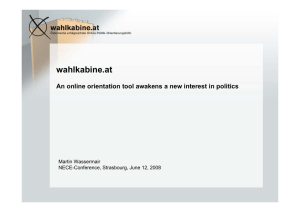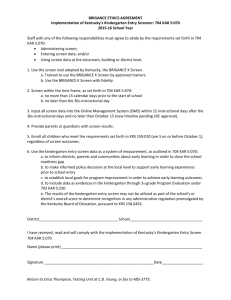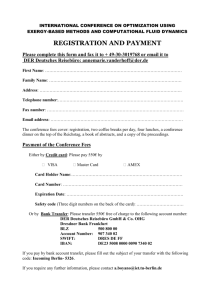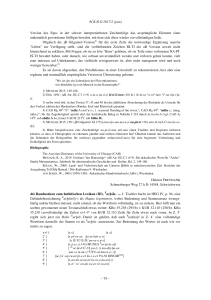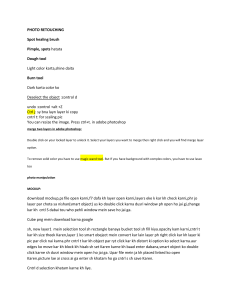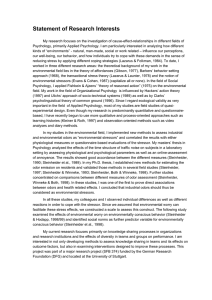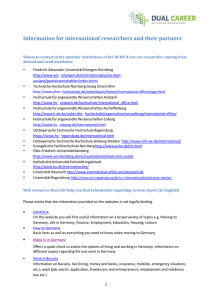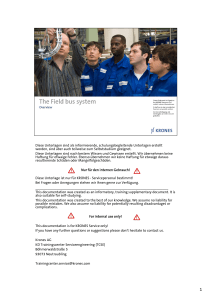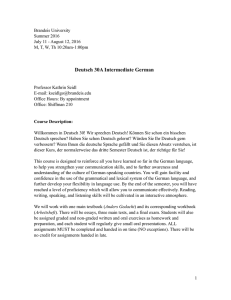Auf der Talsohle At the end of
advertisement
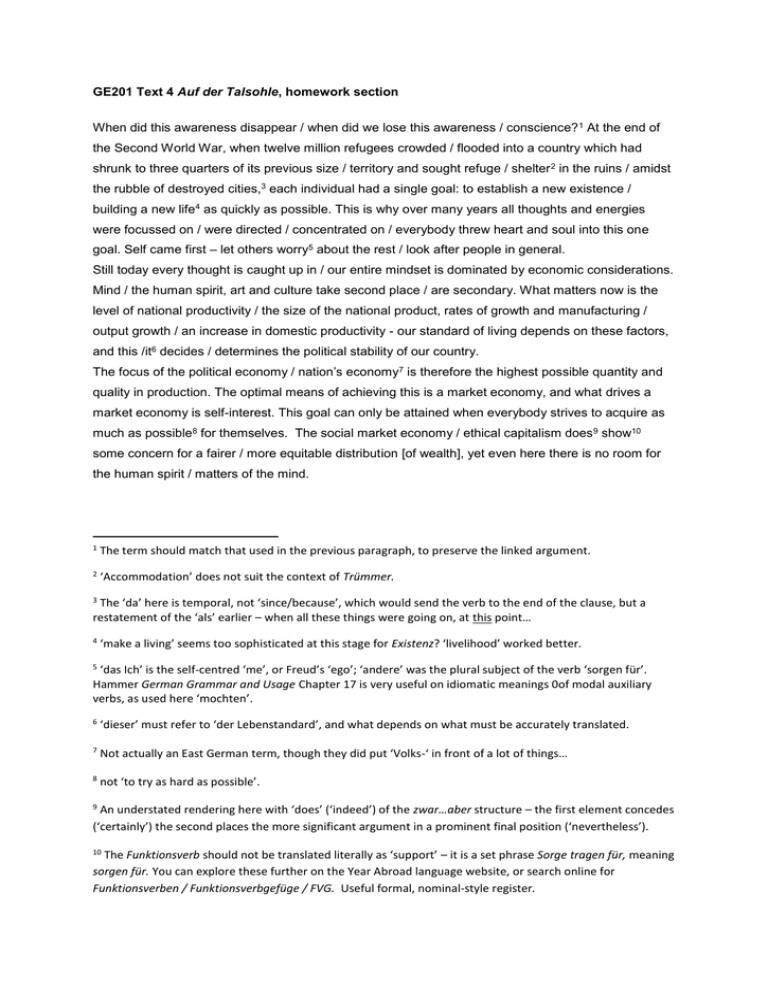
GE201 Text 4 Auf der Talsohle, homework section When did this awareness disappear / when did we lose this awareness / conscience? 1 At the end of the Second World War, when twelve million refugees crowded / flooded into a country which had shrunk to three quarters of its previous size / territory and sought refuge / shelter 2 in the ruins / amidst the rubble of destroyed cities,3 each individual had a single goal: to establish a new existence / building a new life4 as quickly as possible. This is why over many years all thoughts and energies were focussed on / were directed / concentrated on / everybody threw heart and soul into this one goal. Self came first – let others worry5 about the rest / look after people in general. Still today every thought is caught up in / our entire mindset is dominated by economic considerations. Mind / the human spirit, art and culture take second place / are secondary. What matters now is the level of national productivity / the size of the national product, rates of growth and manufacturing / output growth / an increase in domestic productivity - our standard of living depends on these factors, and this /it6 decides / determines the political stability of our country. The focus of the political economy / nation’s economy7 is therefore the highest possible quantity and quality in production. The optimal means of achieving this is a market economy, and what drives a market economy is self-interest. This goal can only be attained when everybody strives to acquire as much as possible8 for themselves. The social market economy / ethical capitalism does 9 show10 some concern for a fairer / more equitable distribution [of wealth], yet even here there is no room for the human spirit / matters of the mind. 1 The term should match that used in the previous paragraph, to preserve the linked argument. 2 ‘Accommodation’ does not suit the context of Trümmer. 3 The ‘da’ here is temporal, not ‘since/because’, which would send the verb to the end of the clause, but a restatement of the ‘als’ earlier – when all these things were going on, at this point… 4 ‘make a living’ seems too sophisticated at this stage for Existenz? ‘livelihood’ worked better. 5 ‘das Ich’ is the self-centred ‘me’, or Freud’s ‘ego’; ‘andere’ was the plural subject of the verb ‘sorgen für’. Hammer German Grammar and Usage Chapter 17 is very useful on idiomatic meanings 0of modal auxiliary verbs, as used here ‘mochten’. 6 ‘dieser’ must refer to ‘der Lebenstandard’, and what depends on what must be accurately translated. 7 Not actually an East German term, though they did put ‘Volks-‘ in front of a lot of things… 8 not ‘to try as hard as possible’. 9 An understated rendering here with ‘does’ (‘indeed’) of the zwar…aber structure – the first element concedes (‘certainly’) the second places the more significant argument in a prominent final position (‘nevertheless’). 10 The Funktionsverb should not be translated literally as ‘support’ – it is a set phrase Sorge tragen für, meaning sorgen für. You can explore these further on the Year Abroad language website, or search online for Funktionsverben / Funktionsverbgefüge / FVG. Useful formal, nominal-style register.

